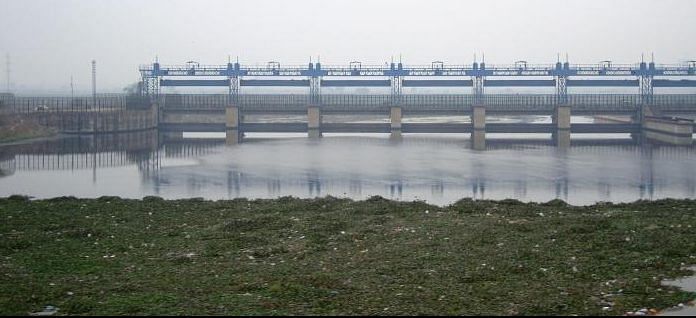Residents in districts including Baghpat and Ghaziabad claim they are suffering from diseases such as hepatitis, cholera, liver damage and cancer.
New Delhi: Industries responsible for polluting stretches along rivers Kali, Krishna and Hindon in western Uttar Pradesh will now have to pay the medical bills of residents who are suffering from infirmities, cancer and other mental health issues.
The order was passed by the National Green Tribunal (NGT) on a plea filed by the Doaba Paryavaran Samiti, who alleged they were forced to consume highly polluted water from the rivers due to the hazardous waste dumped by illegally-run industries.
Residents in the districts of Saharanpur, Baghpat, Ghaziabad, Muzaffarnagar, Shamli and Meerut in Uttar Pradesh claim they are suffering from diseases like hepatitis, cholera, kidney failure, liver damage, mental retardation, cancer, bone diseases, deformities of newborns, and several other fatal diseases.
More than 71 people have died of cancer in the Gangnoli village of Baghpat district alone in the last two years, while 47 people have been bedridden for three to five years. More than 1,000 people are affected by diseases.
Also read: As water levels rise, Yamuna becomes a tourist spot for curious Delhiites
In total, there are 154 affected villages, with a total population of around 50 lakh.
“We are of the opinion that those who have been victims of the diseases on account of polluted water cannot be ignored and must be given a treatment at the cost of polluters,” the NGT bench headed by its chief, Justice A.K. Goel, ruled.
“Apart from monetary compensation in suitable cases, the state may consider giving employment to a dependent of such victims.”
What the state must do
Highlighting the urgency of the situation, the bench — also comprising judicial members Jawad Rahim and S.P. Wangdi and expert member Nagin Nanda — directed the state of Uttar Pradesh to first treat the victims and later recover the money from the polluters.
“We are of the opinion those who have been victims of the diseases on account of polluted water cannot be ignored and must be given treatment at the cost of polluters,” the order stated.
“This also should be a part of action plan so that persons who had suffered diseases are provided treatment first from the state funds and the amount recovered from the polluters. Recovery of amount from the polluters can be ongoing separate exercise and separate pool of funds can be created for treatment of victims from the amount recovered.”
The bench directed the state to initiate “steps required to reverse the situation caused by severe pollution of water of rivers Kali, Hindon and Krishna, and rivulets and drains meeting the said rivers”. It also asked the state to initiate “steps required for punishing those responsible for causing pollution by closing units, initiating prosecution and recovering the cost of damage to the environment”, as well as “steps for rehabilitating the victims of pollution”.
“Water is to be made available not only to few who can afford bottled water and mineral water but to every citizen of the country. No citizen can be deprived of potable water and of right of breathing fresh air. Next generations cannot be deprived of this essential gift of nature, necessary for survival of life systems,” the bench said.
Warning to all states
The bench pulled up the state of Uttar Pradesh for its “patent failure in performance of duty”, observing that “in spite of categorical evidence there is no information whether any such prosecution has taken place against the alleged offenders in the present case”.
“Unless the offenders are punished for serious offence of discharge of effluents in rivers and other water bodies, the pollution continues threatening the very existence of the inhabitants,” the bench said.
Issuing a stern warning for all states, the bench said it was “high time” states kept “strict vigilance” on the failure of their pollution control boards, and to determine whether such failure was on account of incompetence or dishonesty.
“Such responsibility must be overseen by the chief secretaries of all the states. They must be held accountable for the failure of the system wherever the pollution control boards are found careless or wanting in performing their duties,” the bench said.
The tribunal said those “responsible must be forthwith removed and proceeded against so as to be made accountable under the law”.
Also read: Indian cities are choking but there have been just 6 air pollution convictions in 2014-16
River pollution in India
During the course of the hearing, Dr A.B. Akolkar, former member secretary of the Central Pollution Control Board informed the bench that there are 302 polluted river stretches in the country where similar problems are being faced by the residents.
To this, the bench said, a “similar action plan based on the monitoring protocol with respect to the river Hindon be prepared for each of the said 302 polluted stretches”, starting with the identification of the “10 most critically polluted stretches across the country”.



